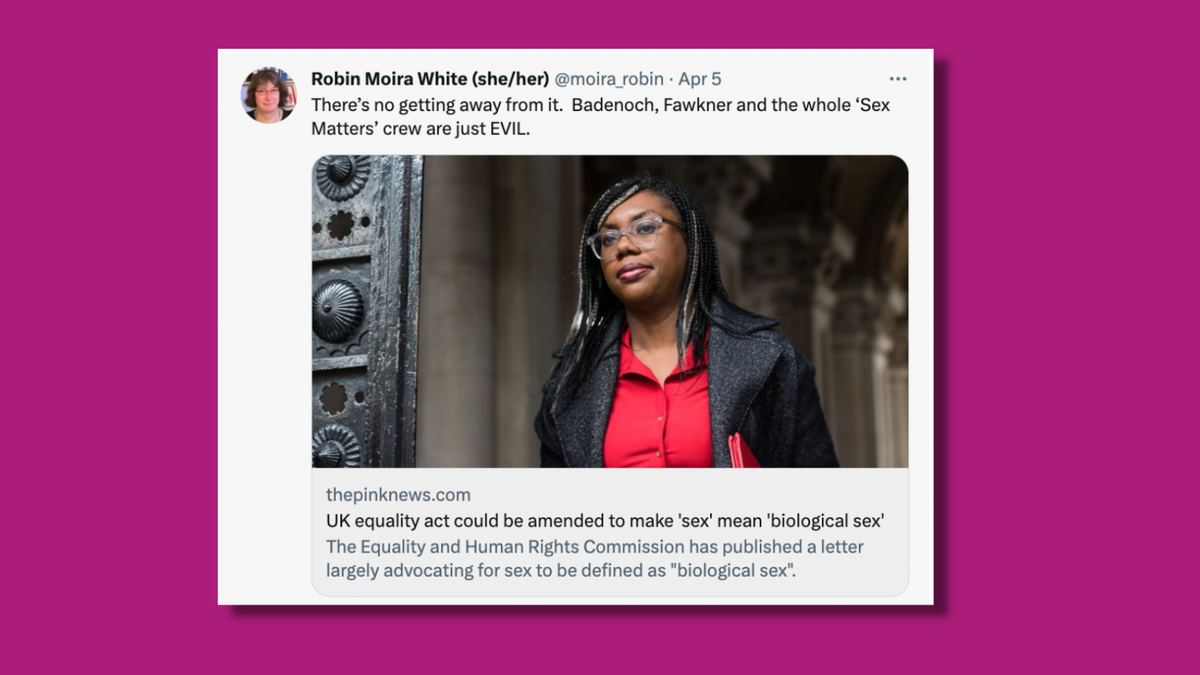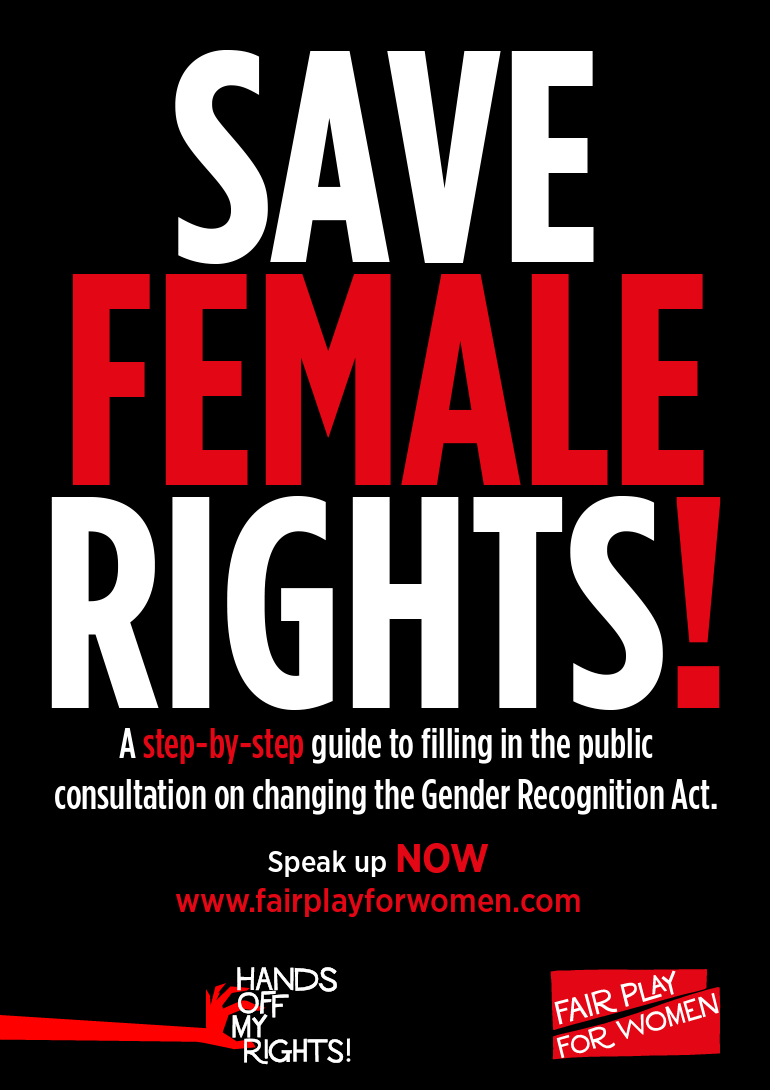Is it time for civil debate yet?

Baroness Kishwer Falkner, Chair of the Equality and Human Rights Commission has written a careful and extensive letter responding to the proposal to clarifying the meaning of the protected characteristic of sex in the Equality Act. She reflects that this area “has become so polarised and contentious that it is inhibiting civil debate”.
Stonewall responded by accusing the EHRC of “opening yet another chapter in a manufactured culture war”.
Who is manufacturing a culture war?
Scrolling through Twitter there are certainly angry and warlike responses. Stonewall CEO Nancy Kelly says she is absolutely furious, and calls the EHRC’s recommendations an assault on the human rights of trans people.
Liberty say they will “fight any attempt to carve up the Equality Act”.
Jayne Ozane says it is unforgivable, and that she is totally sickened and appalled.
Colin MacFarlane of Stonewall Scotland says that it is horrific and terrifying.
Mermaids say the move would strip trans people of their rights.
Barrister Robin Moira White says Badenoch, Fawkner [sic] and the whole Sex Matters crew are EVIL
Former EHRC legal Director Grey Collier (now Mermaids Trustee and Liberty staff member) calls it life-threatening and appeasement of a hate group.
Dr Jo Hartland (author of the GLADD Charter which almost all medical schools have signed) says it is transphobia and transmisogny at the highest levels
Retired Bishop Paul Bayes calls it inhuman and ungodly
What are they outraged about?
The EHRC letter is a response to the proposal in the Sex Matters petition, supported by over 100,000 signatories, to clarify the Equality to Act ensure that the minority of trans people who have a gender recognition certificate are protected against sex discrimination in the same way as other people of the same sex as them (including other trans people without a certificate). They will continue to be protected against gender reassignment discrimination in the same way as other trans people without a certificate.
Stonewall tell us that there are at least 262,000 trans people in England and Wales (although the census figures are dubious). So those with a GRC constitute just 2% of this apparent total.
The groups have been lobbying to make it easier to get a GRC have told us for the past five years that that these certificates have nothing to do with access to single-sex services or discrimination protections under the Equality Act, and that it was only about avoiding a “stigmatising and unnecessarily difficult process to access legal paperwork”.
Now all of a sudden they are arguing that those with a GRC have different rights under the Equality Act than those without, and that it is very important that this two-tier system of trans rights is maintained.
Let’s look at the receipts
This isn’t what they have been saying for the past five years.
Highlighting the issue of the interaction between the GRA and the Equality Act is exactly what Fair Play for Women, Women’s Place UK, Standing for Women and other grassroots groups have been doing since the Government launched its consultation on self-ID in 2018. As Fair Play for Women argued:
“The Gender Recognition Act is a legal mechanism for male-born people to enter the protected characteristic of the FEMALE sex. It is ludicrous to think that women should not be allowed to express a view on this, and at the very least the public must be made aware that deregulation of this law is on the cards. This is not an anti-trans campaign. This is a pro-female campaign. In a democracy, during a government consultation process, we have every right to say that this is a bad law and to point out how this will impact privacy, safety and fairness for women and girls.”
Women who made these arguments have been hounded out of jobs and shamed and intimidated in an attempt to silence them. The Centre for Global Development argued that sharing a leaflet that made these arguments was offensive and transphobic.

When the Women and Equality Select Committee conducted an inquiry on the Gender Recognition Act and asked questions about how the Equality Act 2010 and the Gender Recognition Act interact, one after another the self-ID advocating organisations said that getting a GRC has no impact on the operation of the Equality Act.
Stonewall said:
“Under the Equality Act 2010, the protected characteristic of ‘gender reassignment’ ensures most trans people can access single-sex services in line with their gender, and are not required to obtain a Gender Recognition Certificate (GRC), or have undergone any form of medical intervention, to be eligible for support in these services.”
Nancy Kelley told the committee in oral evidence:
“The protections for trans people and the gender identity protections are not attached to whether someone has a gender recognition certificate, and that is really important for a tonne of reasons, including the way in which the two pieces of legislation do and do not interact.”
The LGBT Consortium and its Trans Organisations Network said:
“[we] believe that there should not be any challenges in the way the Gender Recognition Act 2004 and the Equality Act 2010 interact as to have the protected characteristic of gender reassignment, and therefore to be protected under the Equality Act, trans people do not have to have a Gender Recognition Certificate. There is a significant amount of misinformation around the way that the GRA interacts with the Equality Act and the Government must do more to clarify with public services and the Government that the Equality Act and the GRA do not interact.”
Mermaids said:
“The Equality Act 2010 (EA10) already provides a general right for most trans people – irrespective of their medical status or whether they have a GRC – to access appropriate goods and services (e.g. single-gendered hospital wards).... Mermaids believes that the current provision understands the importance of respecting trans identities, it appreciates that trans people pose no threat in single-sex spaces simply because they are trans and is clear that provisions are not dependent upon someone having a GRC.”
Mermaid’s Lui Asquith told the committee:
“In relation to self-ID, we cannot say enough that we must distinguish the GRA from the Equality Act. That has been said a number of times, but I will say it again.”
Galop said:
“Trans people do not need to have a GRC to be protected under the Equality Act, so there should not be challenges in the way that these two pieces of legislation interact. However, there is a large amount of misinformation around how the GRA impacts the Equality Act, so more government guidance is needed to ensure that bodies subject to the Equality Act are aware of this.”
Gendered Intelligence said:
“In practice, and outside of the confines of didactic (mis)interpretations of the Acts’ interplay by anti-trans bad actors, a trans person is protected from discrimination based on what sex they are perceived to exist as. For example, a trans woman may be victimised or discriminated against based on an assumption of her womanhood – this discrimination comes from a place of (rightful) perception of her as a woman, and as such she would be protected from discrimination under the Equality Act 2010 through virtue of the protected characteristic of ‘sex’. These protections have nothing to do with, and are in no way affected by, the Gender Recognition Act 2004, despite active campaigning to distort public understanding around this.”
“The further changes needed to bring the GRA in line with human rights standard [i.e. self-ID as they were arguing] would not have an impact on the Equality Act and would only affect trans people and would not affect the provision of single sex services, which is regulated by the Equality Act.“
Barnado’s said:
“There should not be any challenges in the way the Gender Recognition Act 2004 and the Equality Act 2010 interact as to have the protected characteristic of gender reassignment, and therefore to be protected under the Equality Act, trans people do not have to have a Gender Recognition Certificate.”
The University College Union said:
“Are there challenges in the way the Gender Recognition Act 2004 and the Equality Act 2010 interact? ...No, as there is minimal interaction between the two legal frameworks. … Furthermore, the protections afforded to trans people by the Equality Act do not rest on the completion of any medical process; they apply from the time a trans or non-binary person identifies their gender as different to the one that matches the sex assigned at birth.”
Following the passing of the Gender Recognition Reform Bill in Scotland, and the UK government use of Section 35 to block it (based in large part on the impacts of it on the operation of the Equality Act), Stonewall again emphasised the same argument “It does not interact with Equality Act”.
A statement signed by a consortium of Scottish civil society organisations said that the GRR Bill would have:
“no impact on women’s services, the operation of the Equality Act, or single sex spaces….Specifically, the Equality Act has allowed for protection from discrimination of trans people on the basis of self-identification since its passage into law in 2010. This was the case before the Gender Recognition Reform Bill and will be the case after. Contrary to arguments made during the passage of the Scottish Bill, this legislation makes no changes to whether and when trans women can access women’s spaces. If it is legitimate and proportionate, trans women can already be excluded from single sex services irrespective of whether they have a Gender Recognition Certificate (GRC) or not.”
What Stonewall, and their allies are now calling inhuman, ungodly, unforgivable and transphobic is a proposal to clarify that a trans person with a GRC has the same human rights and the same protection from discrimination under the Equality Act as a trans person who doesn’t.
This is exactly what they have been saying for the past five years.
